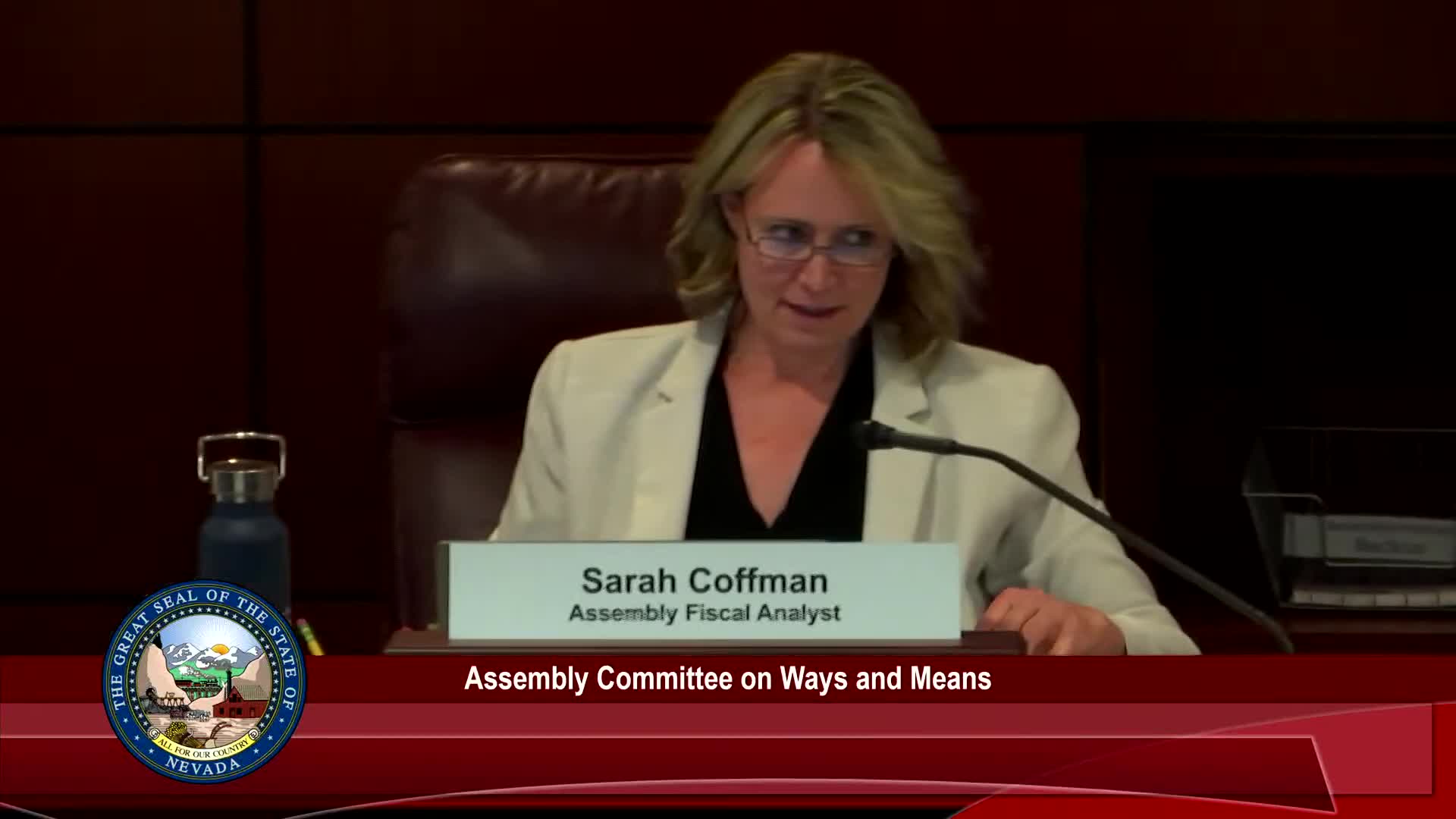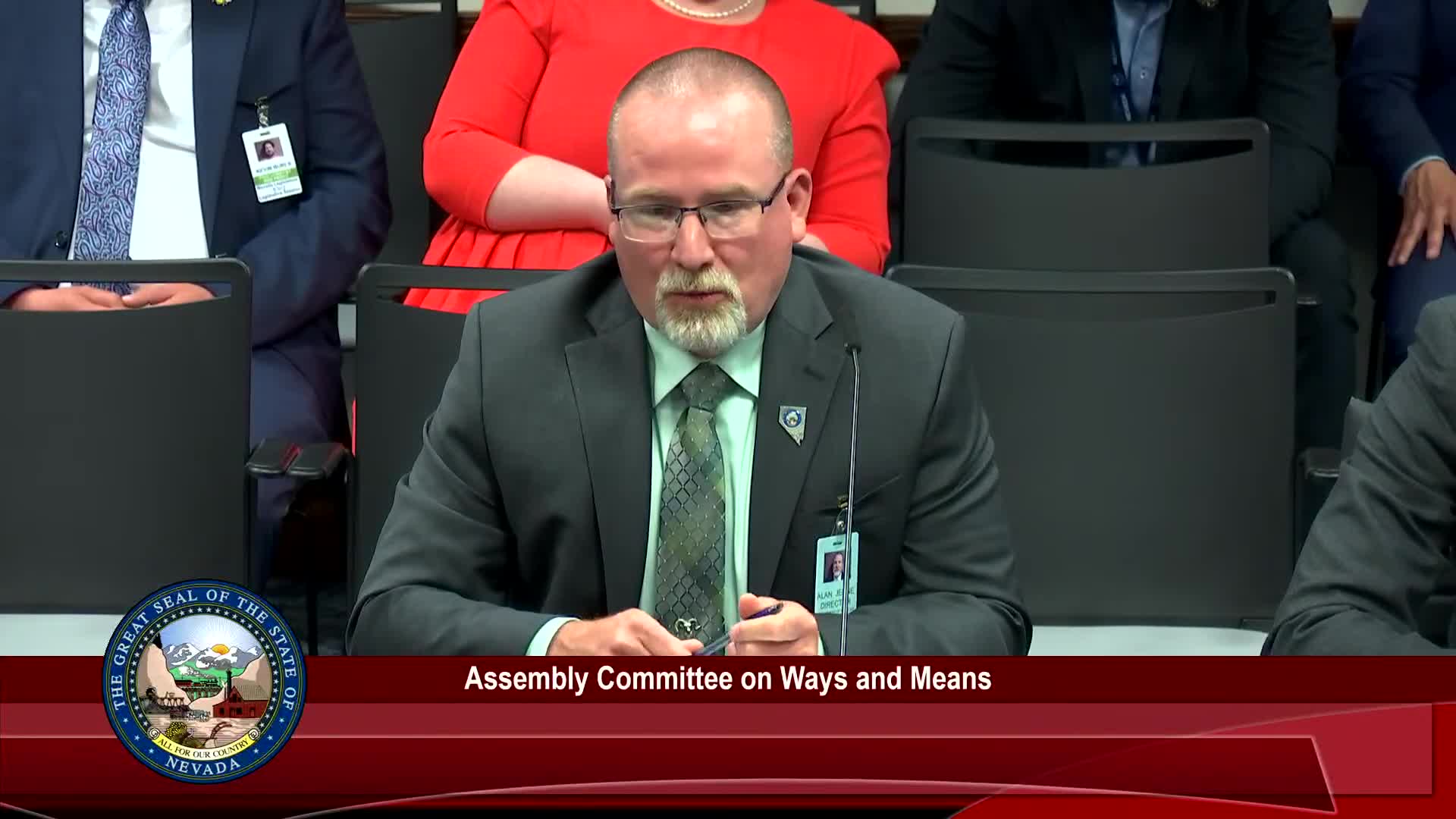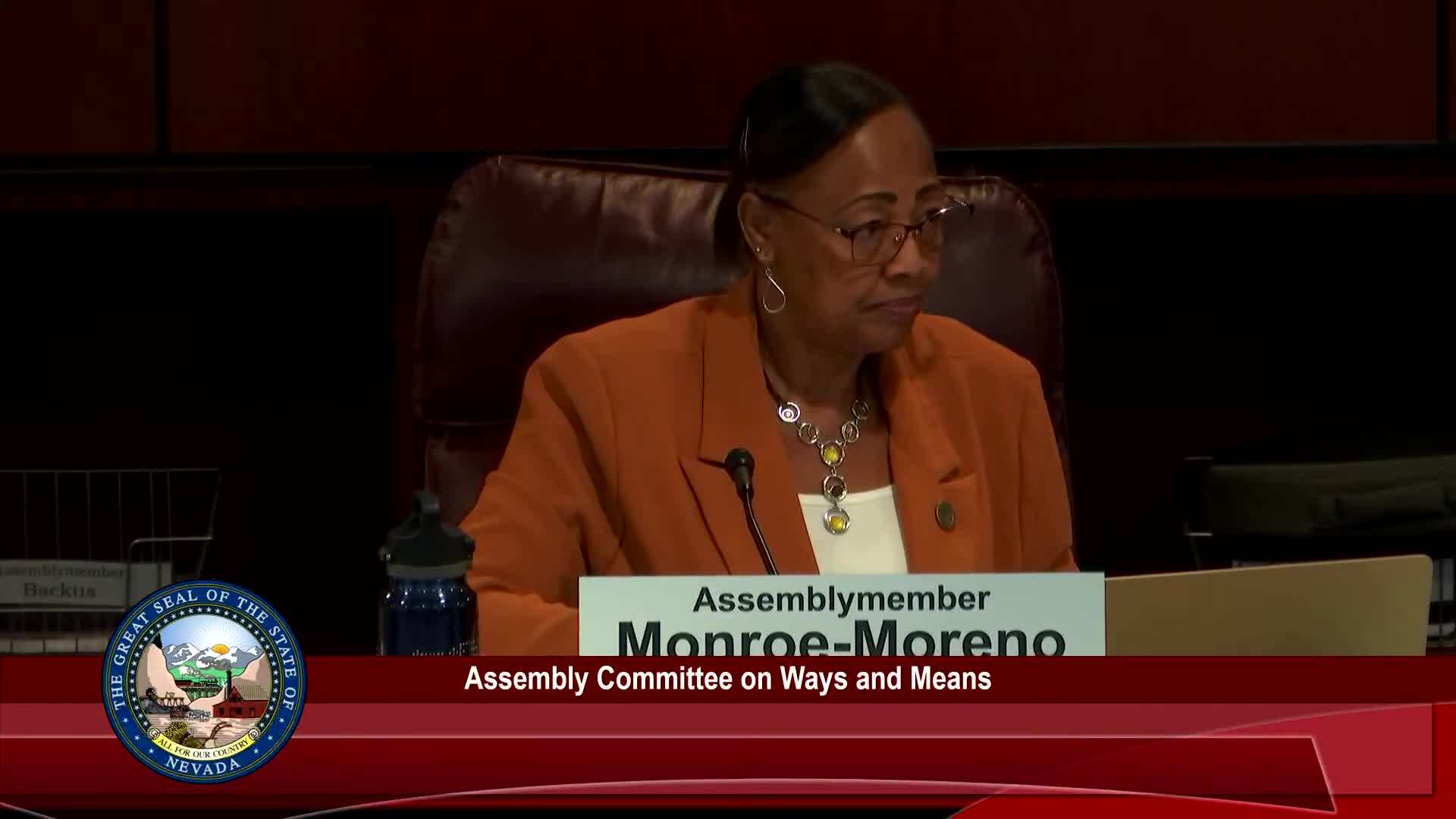Article not found
This article is no longer available. But don't worry—we've gathered other articles that discuss the same topic.

Assembly Ways and Means advances supplemental appropriations for attorney general, forestry, corrections and aging services

Committee hears bill to expand heart-and-lung coverage to all Nevada peace officers

Bill would restore requirement that public buildings make rooms available to county political party committees

